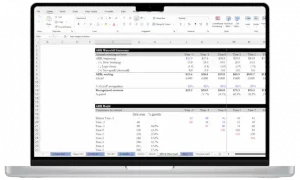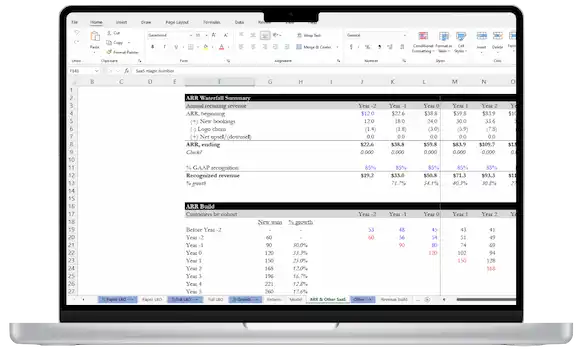If you’re interested in a career in investment banking, Leveraged Finance is a great group to consider joining.
LevFin provides key functions to high-profile clients and multi-million dollar deals and is an important group for investment banks.
In this guide, we’ll go into detail on what the group does, LevFin’s career outlook, exit opportunities, compensation, and more.
What is Leveraged Finance Investment Banking?
Leveraged Finance (LevFin) is a group within investment banks.
They are a product group responsible for helping corporate clients issue more debt to fund company investments or future growth.
Common leverage finance transactions include debt refinancings, dividend recapitalizations, or an acquisition of a new company (e.g. a leveraged buyout or LBO).
LevFin works closely with the Debt Capital Markets (DMC) groups within investment banks. The main difference between the two investment banking groups is that DCM typically works closely with sales & trading to offload debt securities into the open market. Also, LevFin groups specialize in below-investment-grade issuances.
Leveraged Finance works with companies that already have (or will have) a high debt burden. The higher the debt ratio, the riskier it is to offer additional debt issuances. So it takes a specialized team to handle the transaction properly.
Private equity firms are large “consumers” of LevFin services because they typically purchase companies in leveraged buyout transactions, which means they use lots of debt to finance the purchase. This debt is repaid by the purchased company over the investment hold period.
What is the Difference Between Leveraged Finance and Investment Banking?
Leveraged Finance is a subset of (or product delivered by) an investment bank. Often closely tied to an investment bank’s Debt Capital Markets (DCM) team, the LevFin group works with companies to execute new debt issuances at low credit ratings.
The DCM team typically interfaces with the buy-side debt investors that purchase the debt securities in the issuance facilitated by the LevFin group.
Since the Leveraged Finance team is a product team, they work closely with all other industry coverage teams at an investment bank. For example, there might be a leveraged finance deal involving a hospital company. In this case, the Leveraged Finance group would work with the Healthcare Coverage Group to advise on debt issuance.
Since you work closely with industry coverage teams in Leveraged Finance, you will get exposure to multiple industries.
Types of Leveraged Finance Deals
Leveraged Finance works with three main classes of issuing new debt: refinancing, dividend recaps, and new acquisitions.
Refinancing
A common term in corporate finance, refinancing is the process of replacing old debt with new debt. One of the primary motivators to refinance is to lower interest rates and payment amounts on existing debt.
In these deals, the company typically issues new debt and uses the proceeds to repay old debt that has a higher interest rate. In this case, it would continue to make interest payments on the same balance amount, but typically at a lower overall interest expense, thus freeing up a margin of its cash flow.
Dividend Recapitalization
Dividend recapitalization (dividend recap) is when a company issues new debt to pay a special dividend to investors. Private equity firms most commonly use this strategy to increase their investment returns without having to exit or sell their stake in the company.
New Acquisitions
Many corporations grow by purchasing new companies. To finance, these purchases, sometimes they use debt. LevFin investment banking groups partner with companies or a private equity investor to help them issue debt to purchase companies.
New acquisitions include leveraged buyout (LBO) transactions, where a company purchases another entity with mostly funds from debt issuance.
You’ll also work with more traditional company acquisitions, whereby companies purchase competitors using borrowed funds.
Is Leveraged Finance a Good Career Path?
Yes!
Starting a career in leveraged finance offers many growth opportunities within an investment bank if you want to stay in that environment. But you’ll also have many exit opportunities.
Leveraged finance groups work very closely with private equity portfolio companies through LBOs and refinancing deals. So many LevFin bankers eventually get hired by private equity firms, particularly to help with buyouts.
Debt-focused hedge fund groups are another popular exit option for many leveraged finance vets. You’ll get to continue a high-stakes, high-dollar career in a new environment.
One emerging development is that many mega funds are starting their own leveraged finance and debt capital markets groups (e.g. KKR). These groups now compete with traditional investment banks to lead leveraged finance transactions. In the coming years, more volume will likely shift to these entities, which could alter the size and scope of Leveraged Finance groups within investment banks.
Is it Hard to Get Into Leveraged Finance?
All investment banking careers are typically very competitive and challenging to break into.
And with so many attractive exit opportunities, Leveraged Finance is one of the more popular groups bankers want to join.
It’s also competitive due to the in-depth exposure to advanced corporate topics. You’ll become an expert in debt, credit agreements, balance sheets, leverage ratios, and more!
These skills are in high demand, so an experienced LevFin banker can take their pick from many new opportunities.

- 24 lessons
- 6+ video hours
- Expert instructor
ONLINE COURSE
Assess Business Models Like An Investor
Designed for aspiring private equity, growth, or venture investors
“Why Leveraged Finance?” Interview Question
So what are investment banks looking for from leveraged finance candidates?
Besides a solid resume, here are some of the top talking points that will help you stand out in an interview:
- You have a love for investing, particularly when it comes to purchasing and acquiring companies.
- You want a window into many different industries, how they run, and how their debt and assets balance.
- You love to learn. LevFin gives you high exposure to some of the most complex corporate finance topics. This is an excellent career if you want to get deep into balance sheets and debt.
Leveraged Finance Salary & Hours
Although LevFin is closely tied to DCM, your hours are much closer to the long hours and sudden changes you’d experience in typical investment banking or even Mergers & Acquisitions (M&A).
That’s because most of your clients are private equity firms that work long hours and expect quick responses from their investment bankers.
You also work with a high volume of deals with more in-depth analytical work – the more complex the deal, often the longer the hours.
LevFin can offer million-dollar salaries. While Analysts and Associates will have similar compensation as those in other investment banking fields, senior bankers like Managing Directors can reach compensation in the millions.
Leveraged Finance Exit Opportunities
LevFin offers a wide range of exit opportunities because of its exposure to in-depth modeling and finance topics.
Top exit opportunities include:
- Private Equity Firms: Your expertise in credit makes you a great asset for buyout private equity investors and even distressed private equity funds.
- Hedge Funds & Mezzanine Funds: A great fit if you got a lot of modeling experience with your LevFin group.
- Distressed Debt Funds: Distressed Debt works closely with bankruptcy, which isn’t something you’re typically exposed to in LevFin. But they rely heavily on credit analysis expertise, so it can be a good opportunity.
- Other Investment Banking Groups: If you enjoy the investment bank atmosphere but want to try something new, you can transfer internally and try out M&A or other groups. Transfers can also broaden your experience for future ventures outside of investment banking.
Want to Learn More?
Investment banking has a massive impact on the way global business evolves. But, of course, it’s also an ever-evolving field itself!
Check out my guide on how to get into investment banking here.


 Break Into Growth Equity
Break Into Growth Equity

